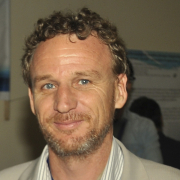Under the Marine Strategy Framework Directive (MSFD), the ecological status of fish and cephalopods must be assessed for each of the four French marine sub-regions (Channel - North Sea, Celtic Seas, Bay of Biscay and Western Mediterranean). In particular, the DCSMM plans to restore or maintain the good ecological status of the marine environment by 2020. In this context, the ACaPELA (ACoustique PELAgique) project is being carried out by the MNHN (Muséum National d'Histoire Naturelle) and the IRD via the UMR LEMAR (UBO, CNRS, IRD, Ifremer), the UMS (OFB -CNRS-MNHN) PatriNat and the UMR BOREA (MNHN, CNRS, UPMC, IRD). This project aims to develop a monitoring methodology and associated indicators to assess the ecological status of pelagic fish and cephalopod populations in coastal environments (i.e. pelagic or bentho-pelagic species that frequent the water column in areas where the bathymetry is between 0 and 40 m). The protocols will consist of an adaptation of the protocols used by the PELGAS and PELMED fishing campaigns, taking into account the coastal constraints, and will combine the use of two complementary acoustic methods: echosounders oriented vertically under the vessel and a multibeam sonar. The validation of the detected targets will be done by crossing the acoustic data (reflectivity index and echotraces) with fishing results via a mesopelagic net, and / or visual counts by scuba diving and underwater video including innovative system and ROV. The campaigns will be conducted in northern Brittany (Gulf of Saint Malo and Roscoff) and southern Brittany (Brest) as well as in the Mediterranean Sea. The long-term objective of this project is to apply the methodology developed for the four French marine sub-regions and in particular to report on the ecological status of populations located along environmental gradients and pressures.
In direct connection with this project, IRD will associate West African partners (e.g., INRH, IMROP, ISRA/CRODT, FD, CIPA, CNSHB) in order to share the methodological results obtained in order to reproduce this methodology on the ultra-coastal zones of the West African continental slope and thus answer the recurrent (Brehmer et al, 2006) and fundamental question of the importance of this area not sampled during small pelagic stock assessment campaigns, which has remained unresolved since the first AWA working groups (2012-2013).


 J_eau_J Dakar 2022
Scroll to top
J_eau_J Dakar 2022
Scroll to top